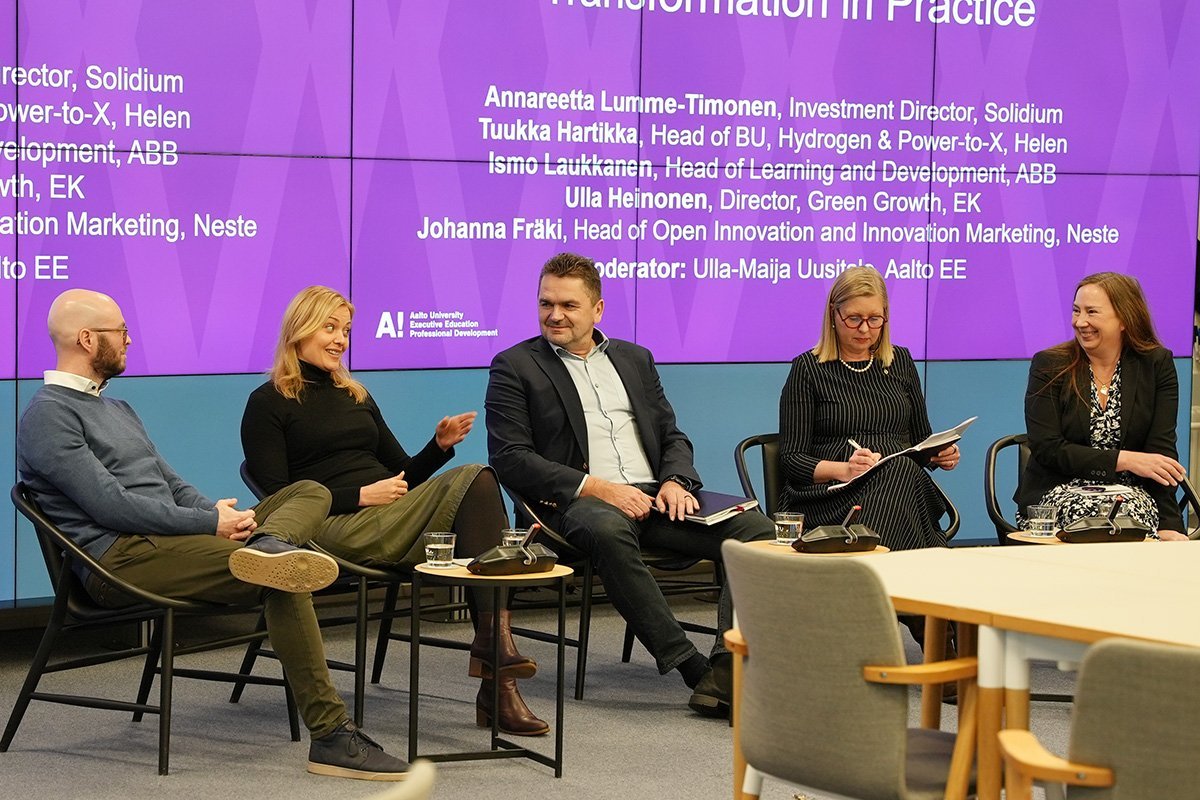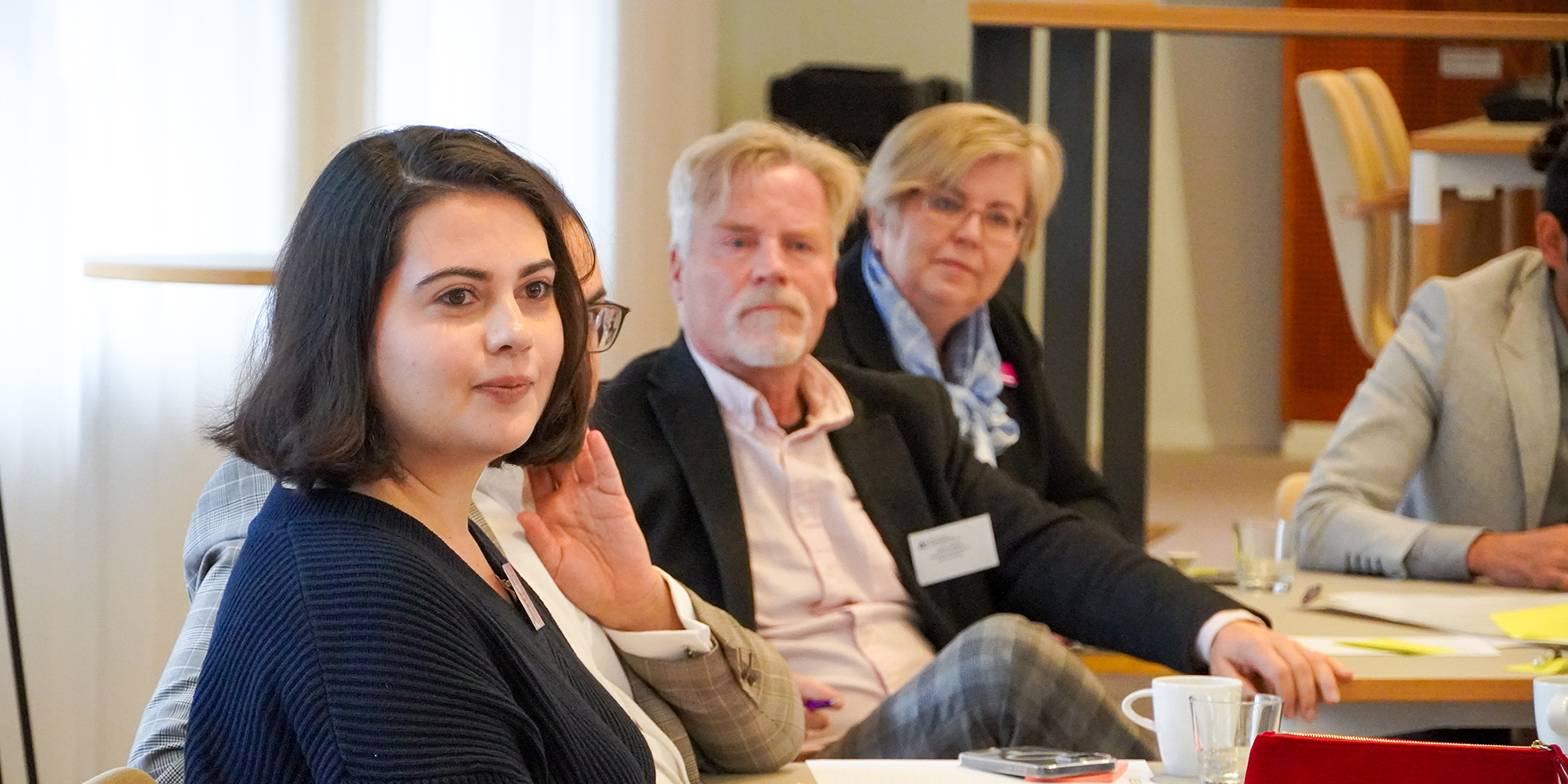Energy transition refers to the global energy sector’s shift from fossil-based systems of energy production and consumption to renewable energy sources. Making such a huge transition a reality calls for new types of competencies, which was widely acknowledged in Aalto EE’s event “Making Energy Transition a Reality – Closing the Competence gap”.
Aalto EE’s Managing Director Tom Lindholm opened the event that took place in mid-December by reminding the listeners of the fact that working life, and therefore the needed competencies, are changing at a pace that is faster than ever before.
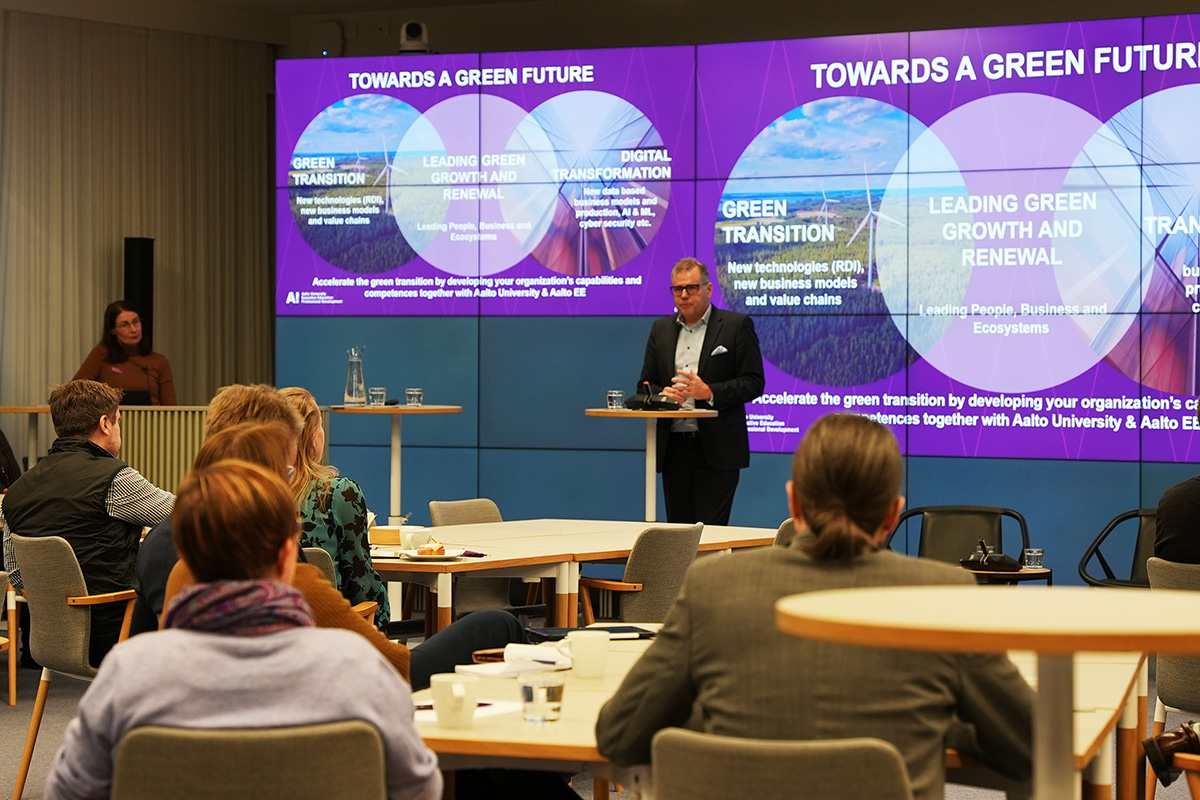
Managing Director Tom Lindholm noted that employees' core skills are changing significantly in the coming few years. Photo: Johnny Jussila / Aalto EE
According to the World Economic Forum, 44% of workers’ core skills will change within the next five years. Lindholm also brought up a report by the Technology Industries of Finland, according to which continuous learning and digitalization will be top competencies in the coming years.
Lindholm noted that everyone in the workforce needs to gain broader competencies and learn new skills instead of simply updating the existing ones. Both reskilling and upskilling are therefore crucial for organizations and individuals alike.
Human skills such as resilience and negotiation skills become increasingly important in the energy sector – among other sectors
Tuukka Hartikka, Head of BU (Hydrogen and Power to X) from Helen Ltd talked about the energy transition from an energy company’s point of view.
Hartikka pointed out that we have the technology for this change – solar panels, lithium-ion batteries, wind, heat pumps, electrolysers – and that the energy transformation is already visible both for customers and in production. Managing the risks related to production becomes increasingly difficult, as energy production is becoming more dependent on weather conditions.
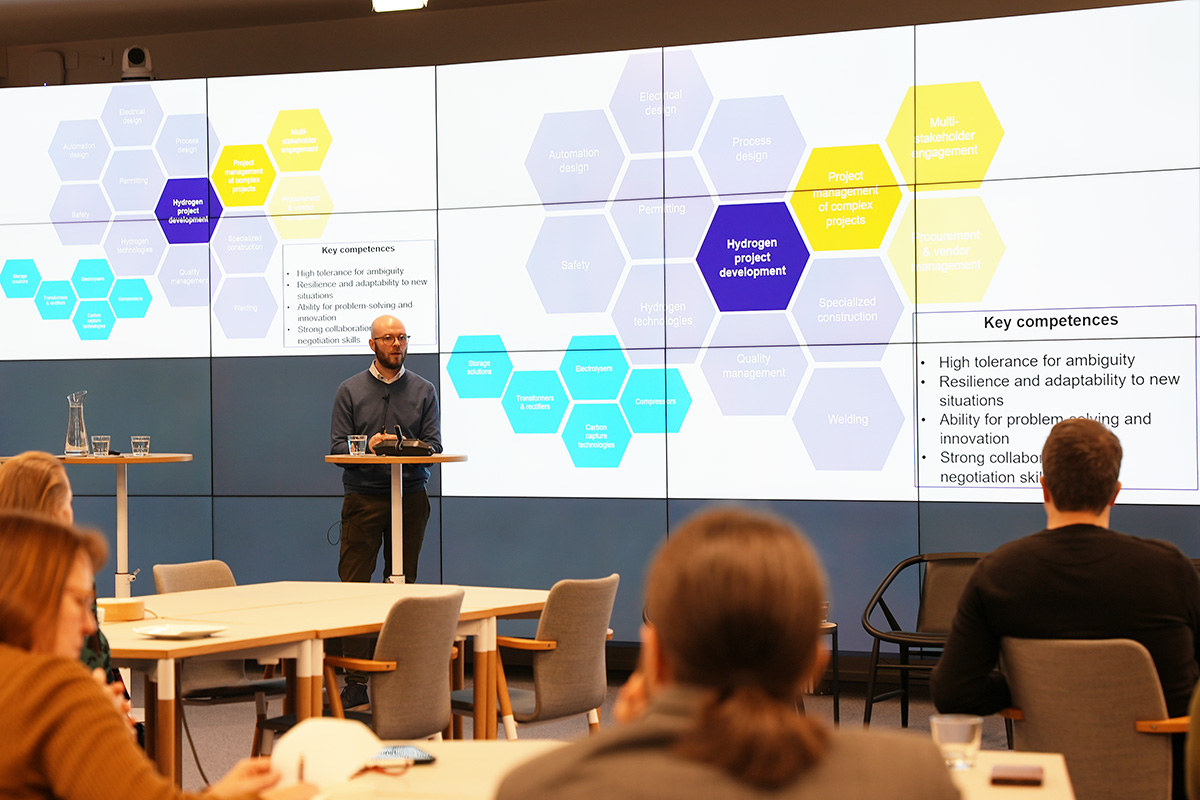
Tuukka Hartikka from Helen pointed out that both the battle against the climate crisis and rapid development of AI are revamping energy production sector. Photo: Johnny Jussila / Aalto EE
However, climate crisis isn’t the only factor that is revamping the industry. The rapid development of AI and technologies are bringing major changes as well.
The massive changes mean a significantly increased
need for re- and upskilling."
At Helen, in about a year, machines will start making more and more suggestions and building scenarios. In about three years, humans will be just monitoring decisions. At the same time, the number of made decisions will increase.
The massive changes mean a significantly increased need for re- and upskilling.
Hartikka pointed out that qualities such as high tolerance for ambiguity, resilience and adaptability to new situations, and strong collaboration and negotiation skills will be increasingly valuable for people working, for instance, in hydrogen business development and hydrogen project development.
This is of course true in many other sectors as well.
Managing sustainability is necessary to ensure future success
Investment Director Annareetta Lumme-Timonen from Solidium emphasized that managing sustainability in a good fashion is a fundamental prerequisite for the future success of organizations.
Solidium, a holding company owned by the State of Finland and a minority owner in nationally important listed companies, sees corporate sustainability as a competitive factor. According to Lumme-Timonen, Solidium as an owner actively evaluates both risk factors and factors that may create value.
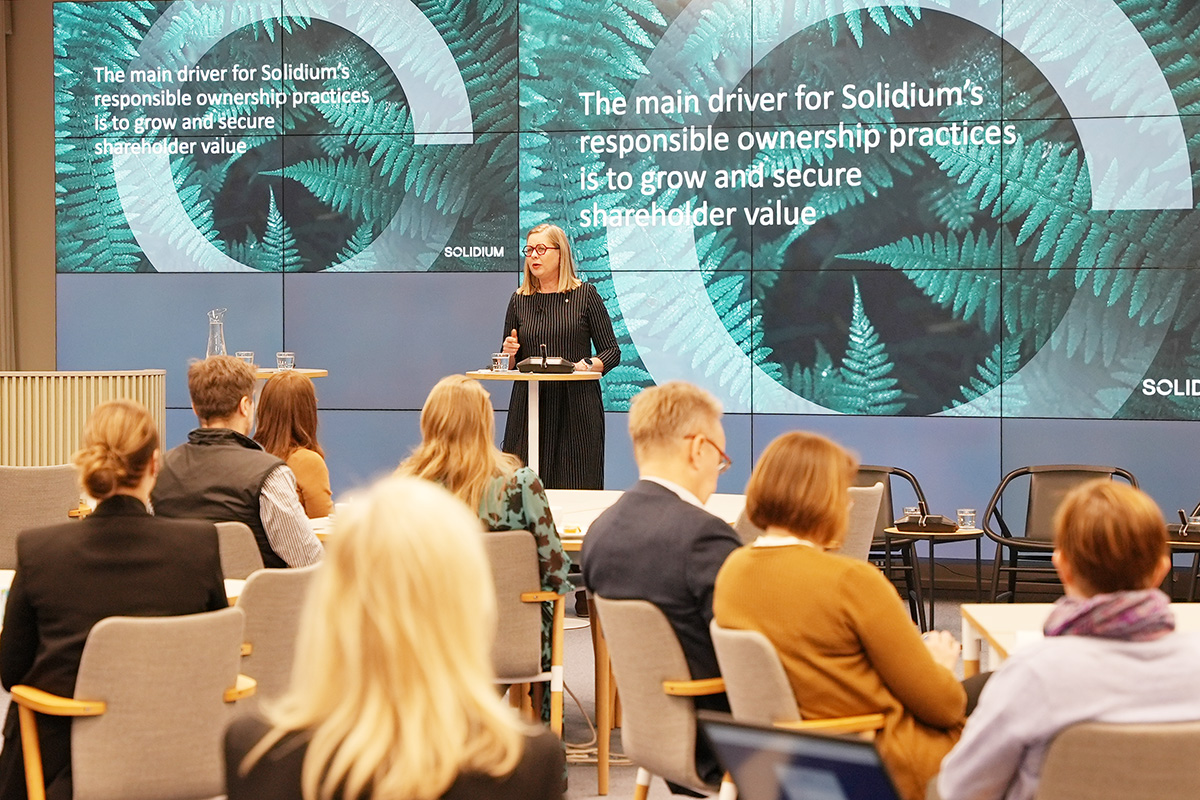
Creating value through ESG is a continuous process for an active owner and shareholder, noted Annareetta Lumme-Timonen from Solidium. Photo: Johnny Jussila / Aalto EE
Solidium has ESG-related expectations for
the companies that are in its portfolio."
Lumme-Timonen said that creating value through ESG (the term that refers to environmental, social, and corporate governance) is a continuous process for an active owner and shareholder. Solidium has ESG-related expectations for the companies that are in its portfolio.
Lumme-Timonen pointed out that companies have an increasing need for developing competencies related to, for example, strategic work related to sustainability (such as understanding what the competitive advantages, as well as drivers of opportunities and risks, are) and change leadership.
Currently, increasing understanding of how biodiversity can be maintained and protected is particularly crucial.
How to drive competence development in practice?
The need to develop competencies related to biodiversity was noted also in the event’s panel discussion, which dove into driving competence development in practice.
The panelists were Annareetta Lumme-Timonen, Tuukka Hartikka, Ulla Heinonen (Director, Green Growth at the Confederation of Finnish Industries EK), Ismo Laukkanen (Head of Learning and Development at ABB), and Johanna Fräki (Head of Open Innovation and Innovation Marketing at Neste). Sales and Account Director Ulla-Maija Uusitalo from Aalto EE moderated the discussion.
Heinonen emphasized the importance of taking care of young people’s skills in basic education and having all children and adolescents on board. Math, writing, and IT skills are critical in the future as well, and competencies are layers that are built on top of each other.
Ismo Laukkanen noted that we should nationally think what support and funding can be provided for re- and upskilling.
The panelists also shared what should be considered when one starts mapping their organization’s needs for competence development.
According to Tuukka Hartikka, it’s important to ask whether you can train your existing employees or hire new talents and think how you can utilize AI in the best possible way. Johanna Fräki added that all organizations should start increasing their understanding of AI and start that work right away.
Throughout the event, many speakers highlighted the importance of long-term and systemic thinking; the ability to see the big picture and build connections between actors. These skills are needed to find holistic solutions to complex problems.
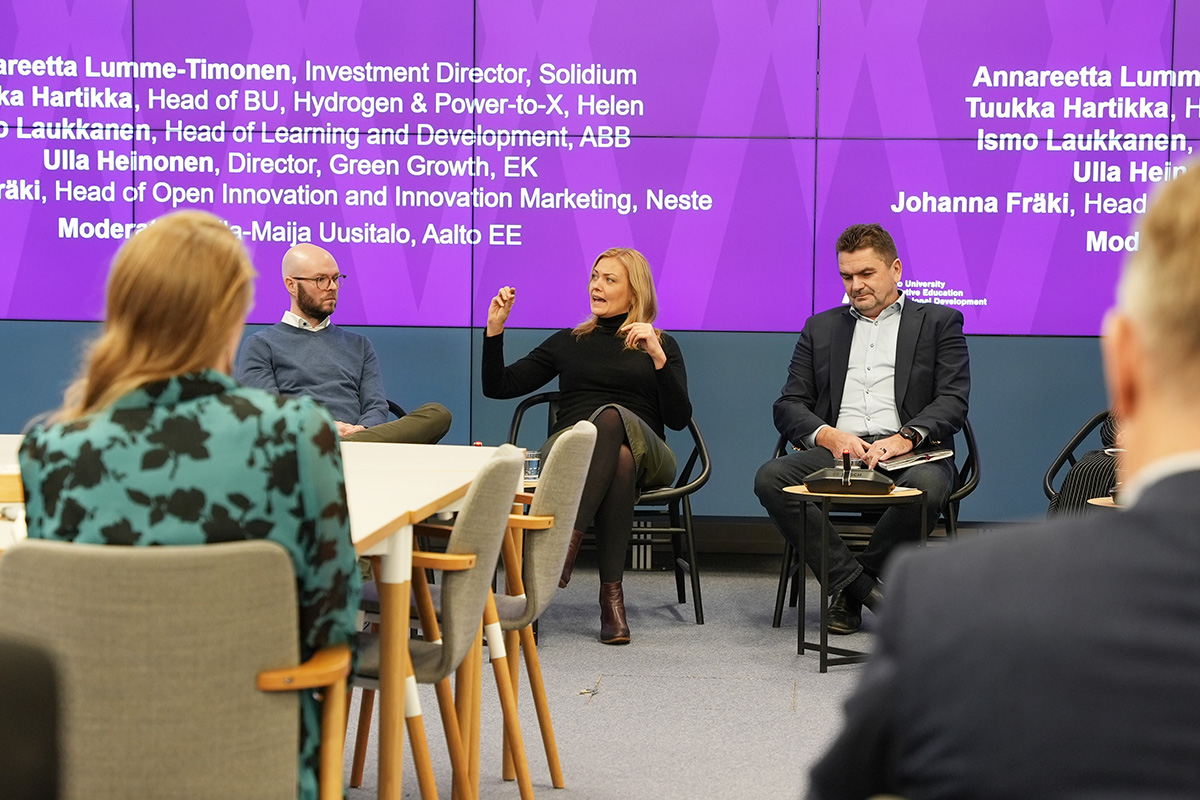
Ulla Heinonen (in the middle) emphasized the importance of keeping all young people on board already in comprehensive school.
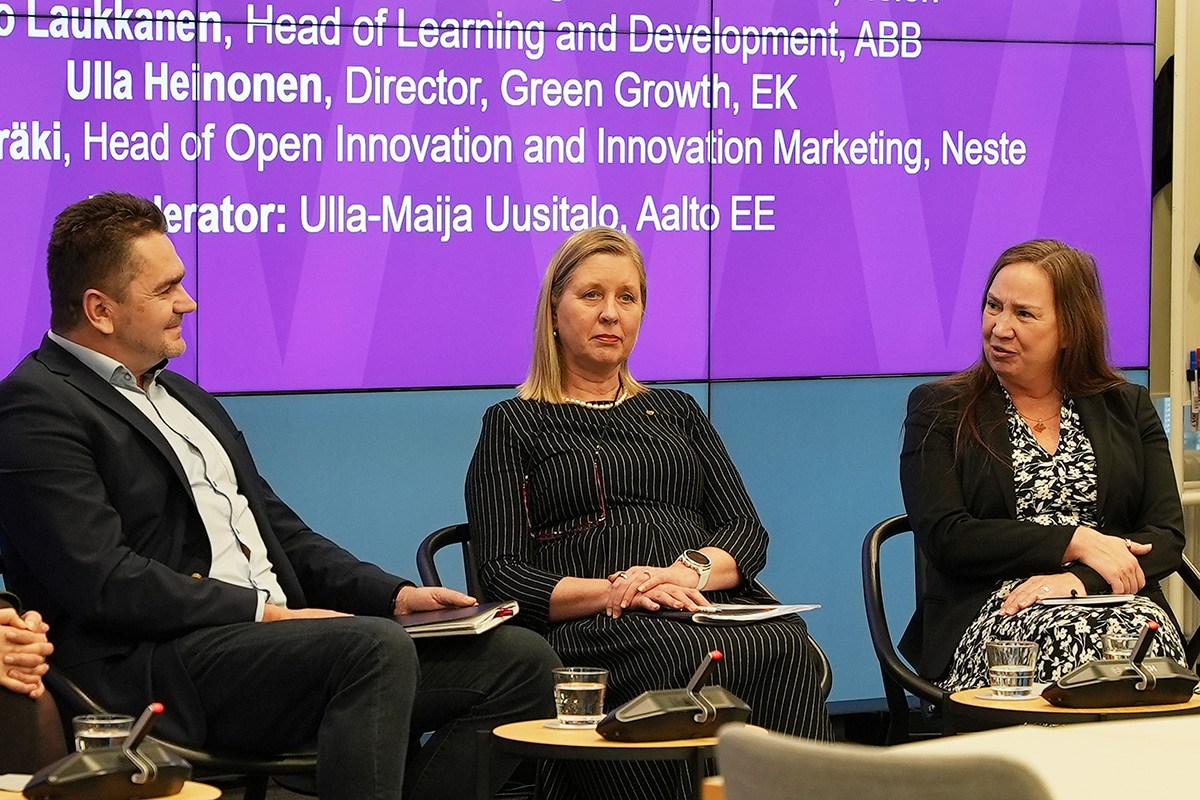
Ismo Laukkanen, Annareetta Lumme-Timonen and Johanna Fräki took part in the panel discussion. Fräki emphasized the need to develop our AI-related competencies.
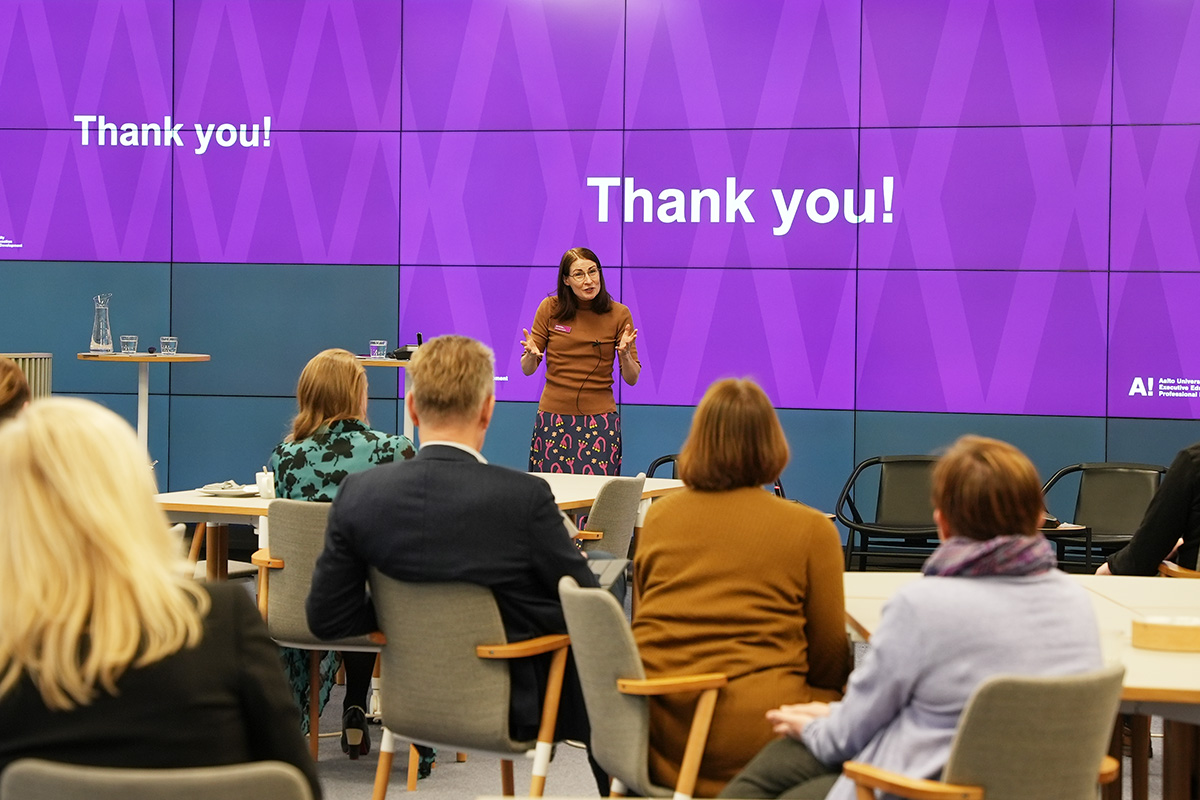
Ulla-Maija Uusitalo, Sales and Account Director from Aalto EE, hosted the event and moderated the panel discussion. Photos: Johnny Jussila / Aalto EE
Aalto EE organized the Making Energy Transition a Reality: Closing the Competence Gap event on December 13, 2023. Energy companies and collaborators were invited to discuss the green transition and the objectives and pain points concerning the competencies and capabilities. Sustainability and green transition are among Aalto EE's focus areas in 2024 as well. Join our webinar on leading sustainable transformation on February 15, 2024.
More about this topic: The Green Transition Will Create New Opportunities for All Industries – "Profits May Outweigh Costs"















